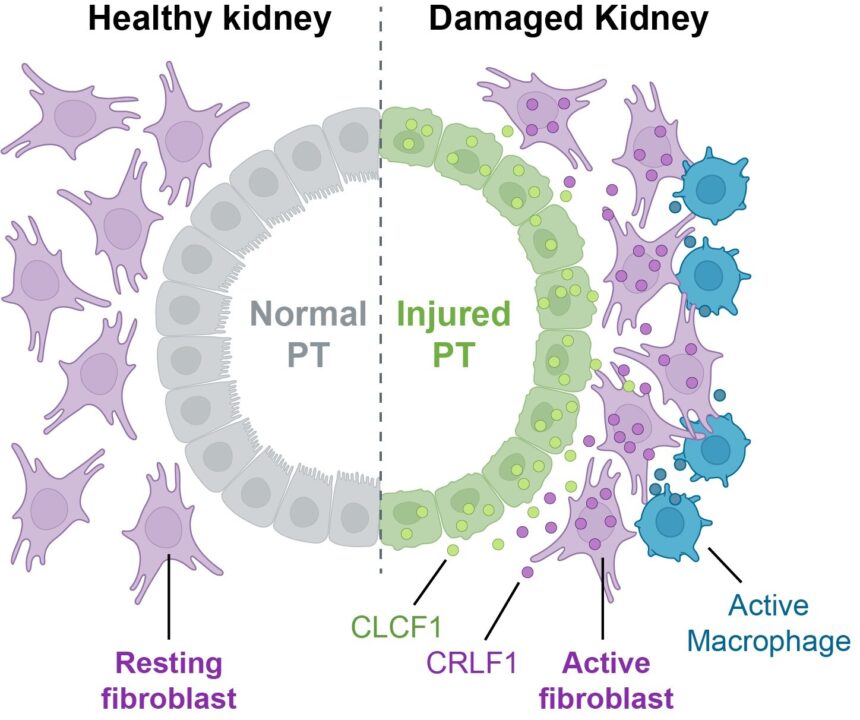A study published in Nature Communications explores how damaged cells interact in disease-promoting environments following acute kidney injury (AKI), which can lead to chronic kidney disease (CKD). With limited treatment options, AKI often progresses to CKD, affecting millions of adults. Researchers utilized a new technology called seqFISH to study gene expression and cellular interactions in mouse kidney tissue post-AKI. They identified specific microenvironments associated with injury progression to CKD, including one involving vulnerable kidney cells exchanging signals with fibroblasts. The study emphasizes the importance of collaborative efforts in biomedical research to advance understanding and potentially prevent CKD.
Source link
New study shows cells get involved in unhealthy relationships after acute kidney injury in mice
